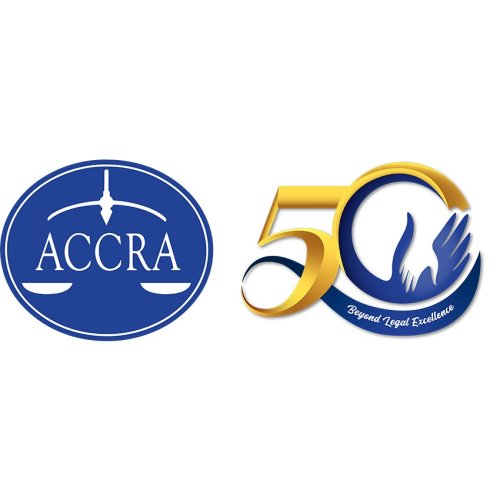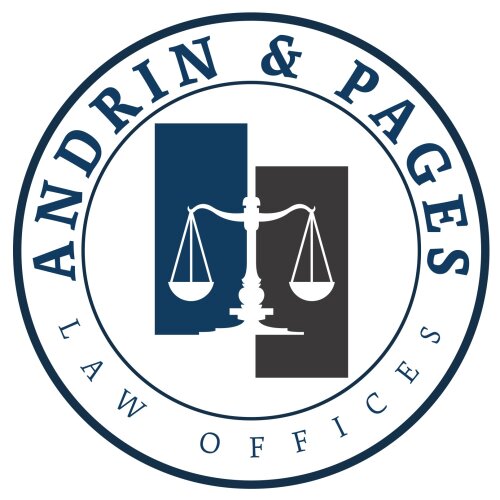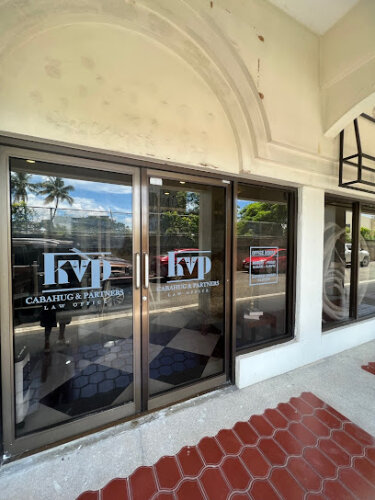Best Criminal Litigation Lawyers in Cebu City
Share your needs with us, get contacted by law firms.
Free. Takes 2 min.
List of the best lawyers in Cebu City, Philippines
Philippines Criminal Litigation Legal Questions answered by Lawyers
Browse our 8 legal questions about Criminal Litigation in Philippines and read the lawyer answers, or ask your own questions for free.
- If the girl friend of the offender is hinding him him to the victim is there a criminal liability?
- The offender has committed an estafa, then his girlfriend is hiding or giving other directions
-
Lawyer answer by Romano Legal Services
Yes, the girlfriend can be held liable as an accessory to the crime committed by her boyfriend.
Read full answer - Consensual rape
- My nephew is 19 yrs old and his girlfriend is 16 yrs old. Her guardian said that she caught the two in her room, with my nephew's pants unzipped but no discreption if there was an actual sexual act. She threatened to file a rape case against my nephew. The... Read more →
-
Lawyer answer by Romano Legal Services
If the only evidence of the girl's guardian is your nephew's unzipped pants, then there is a very high chance your nephew will be acquitted. I say 'chance' and not 100% certainty of acquittal because the guardian may have other...
Read full answer - JUSTICE
- Can I file a case to the driver who cause the death of my sister? Even though the company he worked, will shoulder all the expenses inside the hospital and the burial? Thank You and I hope, I can get my answer.God Bless
-
Lawyer answer by ARREOLA LAW OFFICE
Yes. You can still file a case even if there is a compromise agreement relative to the civil aspect of the case.
Read full answer
About Criminal Litigation Law in Cebu City, Philippines:
Criminal Litigation in Cebu City, Philippines is based on the national laws of the Philippines, regulated by the Revised Penal Code and special laws. In Cebu City, as in the rest of the country, all criminal offenses are prosecuted in the name of the People of the Philippines. Thus, it is the State, through its prosecutors, that pursues the case in court. Crimes are categorized into felonies, which include grave, less grave, and light depending on the gravity of their penalties.
Why You May Need a Lawyer:
Legal representation is important in any criminal case. If accused, a knowledgeable lawyer can navigate the local legal system, represent you in court, protect your rights, and advocate for a fair and lawful treatment. Additionally, they can help turn complex legal jargon into understandable terms, help gather and present necessary evidence, and aid in plea negotiations or sentence reductions. If you are a complainant, the prosecution of crimes requires a clear understanding of the elements of the crime and the presentation of evidence in court, both of which are best handled by a competent lawyer.
Local Laws Overview:
The Revised Penal Code provides the general laws for various crimes including crimes against persons, property, public interest, public order, and chastity. Special laws dictate the rules for specific crimes like Anti-Violence against Women and their Children Act, Anti-Trafficking in Persons Act, and the Comprehensive Dangerous Drugs Act among others. The prosecution follows the Rules of Court, which provide the procedural rules in pursuing a criminal case. These rules cover everything from preliminary investigation, warrant of arrest, arraignment and plea, pre-trial, trial, judgement, and appeal.
Frequently Asked Questions:
What is the first step in a criminal case?
The first step is usually the filing of a complaint, after which a preliminary investigation takes place. A prosecutor will determine probable cause for the issuance of a warrant of arrest.
What is bail and when is it applicable?
Bail is the security given for the release of a person in custody. It ensures that the accused promptly attends all court proceedings. Bail may be given in most cases, but there are certain instances where it is not allowed, like if the accused is charged with a capital offense.
What are the possible defences in a criminal case?
The possible defenses vary for different charges, and may include alibi, denial, self-defense, insanity, or intoxication. Consultation with a lawyer is necessary to fully understand potential defenses.
What if I cannot afford a lawyer?
If you cannot afford one, a Public Attorney's Office (PAO) lawyer may be given to you by the State.
What are my rights if accused?
Some basic rights of the accused include the right to remain silent, right to have a competent and independent counsel, right to be informed of the nature and cause of the accusation, and right to bail and presumption of innocence.
Additional Resources:
You may seek help from the Integrated Bar of the Philippines-Cebu City Chapter, which can provide legal assistance or lawyer recommendation. The Supreme Court website and LawPhil Project also contain national laws and rules of procedure.
Next Steps:
If you need legal assistance, it's important to find a suitable lawyer immediately. Carry all necessary documents during your meetings. Keep in mind that transparency and honesty are crucial for your lawyer to represent you effectively. If you cannot afford a lawyer, reach out to the Public Attorney's Office (PAO) for assistance.
Lawzana helps you find the best lawyers and law firms in Cebu City through a curated and pre-screened list of qualified legal professionals. Our platform offers rankings and detailed profiles of attorneys and law firms, allowing you to compare based on practice areas, including Criminal Litigation, experience, and client feedback.
Each profile includes a description of the firm's areas of practice, client reviews, team members and partners, year of establishment, spoken languages, office locations, contact information, social media presence, and any published articles or resources. Most firms on our platform speak English and are experienced in both local and international legal matters.
Get a quote from top-rated law firms in Cebu City, Philippines — quickly, securely, and without unnecessary hassle.
Disclaimer:
The information provided on this page is for general informational purposes only and does not constitute legal advice. While we strive to ensure the accuracy and relevance of the content, legal information may change over time, and interpretations of the law can vary. You should always consult with a qualified legal professional for advice specific to your situation.
We disclaim all liability for actions taken or not taken based on the content of this page. If you believe any information is incorrect or outdated, please contact us, and we will review and update it where appropriate.

















